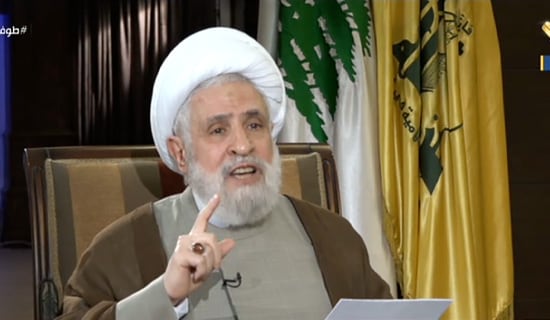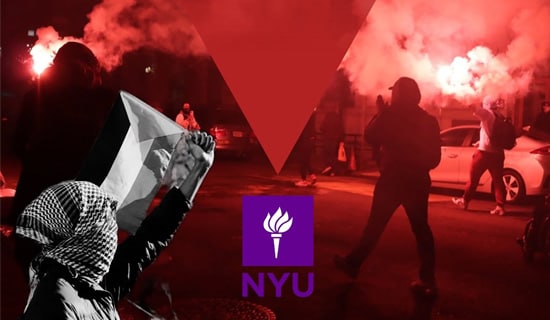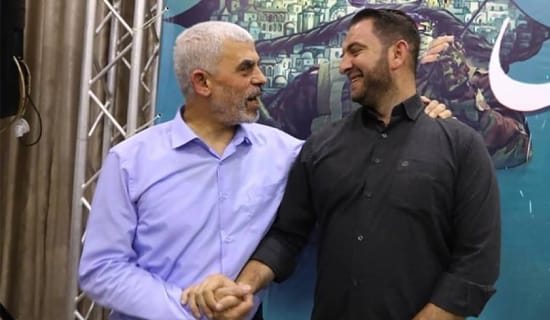In early February, PA attorney general Ahmad Barak banned the novel Crime in Ramallah by author and journalist 'Abbad Yahya, and ordered to remove it from all bookshops on the grounds that it "contains texts and terms that threaten decency and morality and could harm the public, especially minors and children."[1] The novel, first published in October 2016, tells the story of three young people from Ramallah, one of them a homosexual who speaks of his sexual orientation and also describes his religious family, some of whose members belong to Hamas.
This content sparked criticism of the book and its author on social media, which apparently led to the authorities' ban, and in Nablus the district governor and municipality also prohibited to hold a conference on the book.[2]
The attorney general's decision to ban the book sparked a public debate. Many Palestinian intellectuals and institutions opposed the ban on the grounds that it violates freedom of expression. They also argued that banning the book would only increase people's curiosity about it and cause more people to read it, especially since in this age of internet and social media it is virtually impossible to prevent the circulation of texts.
In light of the public debate, the PA Culture Ministry issued a statement on February 16 clarifying that the attorney general had not banned the book but had only suspended its distribution pending a review by a team of literary experts. The statement said: "Appealing to [literary] critics and professionals is a wise way to handle this matter objectively and professionally without compromising freedom of expression and opinion or the rules and regulations relevant to the matter."[3]
This report will review responses in the PA and Palestinian press to the banning of the book.

Author 'Abbad Yahya and the cover of the book Crime in Ramallah (image: amad.ps, February 12, 2017)
Criticism Of The Attorney General's Decision: Banning And Burning Books Only Increases Their Popularity
The PLO's culture and information bureau issued a statement on February 7 in which it attacked the attorney general's decision to suspend the book's distribution as "completely unjustified" and "a severe violation of the freedom of expression and artistic creativity guaranteed by law."[4]
The head of the Palestinian Writers Union, Murad Al-Sudani, also opposed the decision, saying: "The freedom to write is a principle that must not be relinquished, and that is why we oppose the action taken against the book." Palestinian author and political science lecturer at Al-Quds University, Dr. Ahmad Rafiq 'Awad, likewise spoke against banning books and persecuting authors, saying: "Books that were banned, persecuted or burned eventually enjoyed [wider] circulation... You can criticize the [book's] content by [writing] articles or critiques and exposing [its flaws], while leaving the matter within the sphere of culture."[5]
Palestinian poet Ghassan Zaqtan said that the decision reflected an obsolete policy characteristic of dictatorial regimes and that the ones to decide whether a book was acceptable or not were the readers, not the authorities or the security apparatuses. He told the Al-Quds daily: "I am against banning books. Any attempt to mention the book's content as justification for banning it misses the main point. Talk about social standards and the violation of social norms will cause us to empty our bookshelves of [both] our own literature and translated literature... Removing books from the stores and summoning authors and publishers [for questioning] are measures [typical of] dictatorial regimes, [measures] that are obsolete and must not be accepted. Nobody may set himself up as a social policeman dictating social norms and standards for writing [books]. It is up to the reader to decide whether to buy the book or not."[6]
SUPPORT OUR WORK

Palestinian, Arab Intellectuals Demand To Cancel Action Against The Book And Its Author
Additionally, 99 Palestinian and Arab intellectuals issued a communique calling to immediately cancel the ban on Crime in Ramallah, among them author Osama Al-'Issa, literary critic 'Adel Al-Asta and poet Ghassan Zaqtan. The communique stated: "We believe that [such] punitive measures only harm the Palestinian people and its struggle for liberation from tyranny, oppression, and censorship. We call on all supporters of freedom of thought and publication to declare their position publicly and clearly. We demand to cancel the legal action and call on the Palestinian Culture Ministry, which is in charge of culture and authors, to organize a round-table discussion on several aspects of the book... It is strange that the people who oppose indecency are the same ones who behave indecently themselves by posting curses and slander [referring to social media posts against the book and author]."[7]
Palestinian Columnists: Palestine Is A Member Of UNESCO, Committed To Treaties Ensuring Free Speech
Columnists in the Palestinian press joined the condemnation of the suspension of the book's distribution and of PA interference in book publishing. Al-Ayyam columnist 'Abd Al-Ghani Salameh wrote: "I am not commenting on the content of the novel because I have not yet read it... The correct opinion and the proper judgment will be that of the professionals, meaning the critics and literary scholars. It would be strange and reprehensible for security apparatuses or their representatives to pass judgment on the book. This happens only in totalitarian regimes that still believe in the scissors of censorship and in patronage over literature and thought. It is outrageous that such behavior should take place in the age of globalization, the information revolution, and the internet... Palestine is a member of UNESCO and is committed to all treaties that ensure free speech. We have come a long way in this field, more than most neighboring countries. We have dozens of private TV and radio stations, and every year dozens of books are published with no need for their authors to receive permission or licenses. Every day, newspapers and Facebook feature dozens of articles by the opposition that are not censored or thwarted. This is an important achievement and any regression from it is grave... There is no justification for militarizing culture or subjecting it to conditions set by the security [apparatuses], for this may cause regression. Only measured literary criticism can correct errors and promote and foster [good] literature... Evoking the [Muslim] ummah's conscience and morality watchdogs, appealing to censorship, and exploiting customs, traditions, cultural conservatism, and religious zealotry [as a reason to censor books] are offensive acts. The excuse of protecting children is weak because our children spend hours online in their rooms or with their friends and we cannot censor them constantly. [Moreover,] if something is denied them, they will look for it out of curiosity and because stolen water is sweet."[8]
Al-Quds columnist Dr. Dalal 'Iriqat wrote: "The unwise interference by the attorney general's office gave the author and his book a great deal of free publicity. Its decision shined a spotlight and motivated readers to seek out and show great interest in the book, which readers have said is morally dubious and does not serve literature or Palestinian culture."[9]
PA Daily Editor-In-Chief: Free Speech Is Not Sacred When It Endangers Moral Values
An unusual opinion was expressed by editor-in-chief of the PA daily Al-Hayat Al-Jadida, Mahmoud Abu Al-Haija, who wrote: "I do not wish to defend the decision of the attorney general, but we must speak the truth, which is that [the novel] Crime in Ramallah... is a crime against society and its moral and educational values, and therefore we must demand a legal review... Free speech must not become a totally sacred slogan, and we must come out against anything that endangers moral values. I say again that we can and should deal with this matter with objective criticism and discussion that can distinguish between right and wrong and between a creative text and a text that is merely a cheap commodity. The novel Crime in Ramallah belongs to the latter category, and I have seen a lot of invective and justifiable reservations expressed about it on Facebook."[10]
[1] Wafa.ps, February 6, 2017.
[2] Al-Ayyam (PA), February 8, 12, 2017; Al-Arabi Al-Jadid (London), February 4, 2017.
[3] Wafa.ps, February 16, 2017.
[4] Al-Ayyam (PA), February 8, 2017.
[5] Al-Quds (Jerusalem), February 7, 2017.
[6] Al-Quds (Jerusalem), February 7, 2017.
[7] Amad.ps, February 12, 2017.
[8] Al-Ayyam (PA), February 8, 2017.
[9] Al-Quds (Jerusalem), February 12, 2017.
[10] Al-Hayat Al-Jadida (PA), February 9, 2017.




